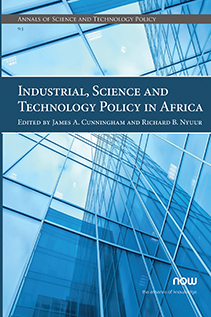Industrial, Science and Technology Policy in Rwanda
By Alain C. Nkusi, Teesside University International Business School, UK, a.nkusi@tees.ac.uk
Abstract
The question of what capacity to build for Science, Technology, and Innovation (STI) and how it should be built has been a challenge to many African countries. The focus on STI capacity building is underscored by the need to transition from an agrarian-based to a knowledge-based economy. The current trajectory of STI activities at the continental level is influenced by the Science and Technology Consolidated Plan of Action (CPA). Most African countries are faced with numerous challenges to create an environment in which STI can flourish. However, many countries developed numerous STI-supporting policies and established institutions to create enabling environments to address national priorities and respond to national characteristics and highlight the pivotal role of higher education institutions as significant players in driving the national agenda. This study explores Rwanda’s journey to establishing STI policies to support the country’s economic and social development.
Industrial, Science and Technology Policy in Africa
There has been significant research attention and focus on industrial science and technology policies in developed economies that have been at the forefront of implementing various policy initiatives designed to stimulate firm level R&D, enhance university industry collaborations, and support entrepreneurs and start-ups. However, there has not been the same consistent research attention on science and technology policy in less developed countries where there are distinct economic, social, cultural and institutional differences. Industrial, Science and Technology Policy in Africa considers some of the contextual issues for science and technology policy development in Africa and proposes future avenues for research.

Companion
Annals of Science and Technology Policy, Volume 9, Issue 1 Special Issue: Industrial, Science and Technology Policy in Africa
See the other articles that are also part of this special issue.